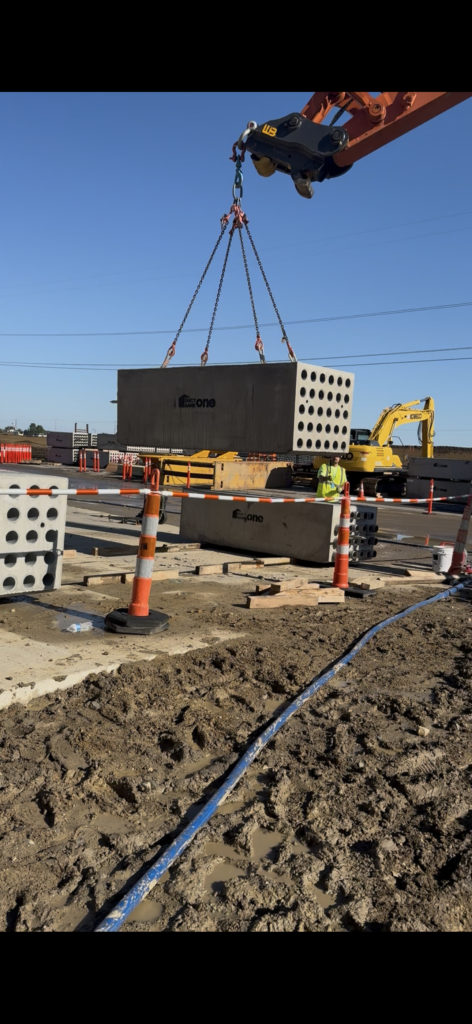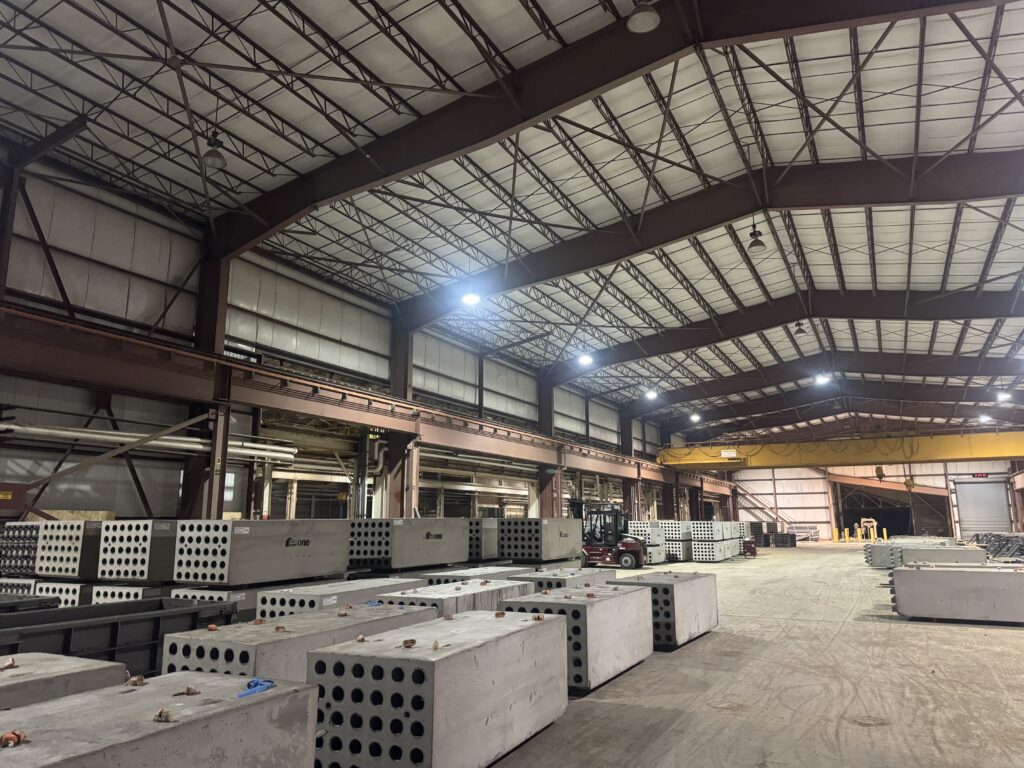Every GC and EC has been there: the trench is open, crews are standing by, and the duct bank isn’t. Whether it’s a late shipment, a weather delay, or another cast-in-place pour that just won’t cure, those lost days ripple across the entire project. DBO exists to keep that from happening — and when it does, to recover fast without cutting corners.
How Delays Compound in the Field
With traditional cast-in-place, one lost day rarely stays one day.
The typical chain looks like this:
- Rain pushes back the pour.
- Ground softens — grade rework required.
- Inspection reschedules.
- Cure time adds another 3–5 days.
- Next trades stack up waiting on backfill.
By the time the trench is closed, the site has lost a week or more of production and the safety exposure that goes with it. Those delays don’t just cost money — they cost control.
When Precast Falls Behind
Even in precast, lead times can tighten and freight can slip. The difference with DBO is how we prepare for it — and how we respond when it happens. We don’t make excuses; we make up ground.
DBO’s Schedule-Protection System
We plan for contingencies before the job starts. It’s how we’ve kept projects on track even when conditions changed midstream.
1. Stockpiling for Flexibility
We maintain an inventory of completed duct bank sections — poured, cured, and tagged — ready for quick deployment when a site needs immediate material. If your project has laydown capacity, we’ll ship as much as you can safely stage, so you always have product ready when the trench is open.
2. Realistic Turnaround — Backed by Control
Because DBO controls the entire process — engineering, forms, rebar, and concrete — we can pivot production without waiting on outside suppliers.
- Stamped calculations and submittals: typically 10–14 days from design approval.
- Accelerated production: new sections poured once approved.
- 320 pieces per day casting capacity for large program demand.
That’s not marketing speed; that’s what we actually do — proven across data-center and industrial projects where delivery windows were measured in days, not months.
3. Adaptive Logistics
Our logistics team syncs directly with your site lead. If weather or excavation shifts, we adjust — advancing or holding loads to match trench readiness. If you get ahead, we move faster. If you fall behind, we stage material in our yard until you’re ready.
4. Field Support When You’re in Recovery Mode
DBO doesn’t perform installations, but we don’t disappear at delivery either. When timelines compress, our technical field representatives are available to:
- Assist with placement planning and sequencing.
- Provide on-site guidance for safe rigging and dowel-pin alignment.
- Verify joint fit and gasket performance during initial sets.
- Ensure your team is comfortable maintaining pace and quality.
We don’t do the work — we make sure the work goes right.
When Cast-In-Place Is Already Behind
If your field-built duct bank is dragging, switching mid-project is possible — and often the fastest recovery plan.
We’ll:
- Capture your geometry from as-built or drawings.
- Fabricate matching precast sections.
- Deliver within a few weeks for immediate installation.
Several GCs have made the switch midstream, finishing their remaining runs with DBO and regaining 10–14 lost days on the overall schedule.
Real-World Example
A regional contractor building a hyperscale data center in the Midwest fell two weeks behind due to back-to-back rain delays and inspection resets on cast-in-place runs. Within 12 days, DBO delivered matching precast sections from regional stock, and the site installed 150 linear feet per day until the underground scope was closed.
Total recovery: 10 lost days back, zero safety incidents, zero rework.
Why GCs Call DBO “Schedule Insurance”
We can’t control the weather or the concrete plant, but we can control everything we touch — and that’s what keeps projects moving.
- Stockpiled inventory ready for fast deployment.
- Integrated production that can flex without subcontractors.
- Measured, realistic turnaround — weeks, not months.
- Field support to get the job done right the first time.
That’s why GCs describe DBO as schedule insurance. When things start to slip, we’re the call that gets the trench closed again. Because in construction, you don’t get to buy more time — but you can buy certainty.



